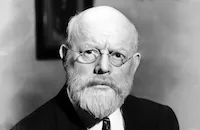Magnificent Doll
Brief Synopsis
Cast & Crew
Frank Borzage
Ginger Rogers
David Niven
Burgess Meredith
Peggy Wood
Horace Mcnally
Film Details
Technical Specs

Synopsis
In 1814, during the British invasion of Washington, D.C., Dorthea "Dolly" Payne Madison, wife of President James Madison, busily prepares an evacuation of the White House. While packing her belongings, Dolly recalls her journey to the White House, beginning in her youth, when her father, John Payne, returned to their home in Virginia after fighting in the Revolutionary War: Fulfilling a promise he made to a dying friend and fellow soldier, Payne sells his slaves, joins the Quaker faith, moves his family to Philadelphia and arranges the marriage of his daughter Dolly to John Todd, his friend's son. Dolly, however, dislikes her new husband, and though she eventually has a son by him, she resigns herself to a loveless marriage. Tragedy strikes when first Dolly's father and then her son die from yellow fever. Dolly eventually falls in love with John, but her affections come too late, as John, too, is killed by the deadly plague. The next two years prove to be lonely and bitter ones for Dolly and her mother, who live together in a large house. Dolly's mother eventually takes in a number boarders, including Aaron Burr, a Senator from New York, and Burr's friend, James Madison, a Congressman from Virginia. Burr and Madison, though close friends, are often at odds with each other, arguing about everything from politics to their common interest in Dolly. Dolly and Burr spark a romance, but Dolly soon discovers that he is an autocrat and begins to despise his politics. She later turns to Madison for companionship, and they fall in love. When Dolly tells Burr that she intends to marry Madison, he becomes enraged and forces her to kiss him, but Dolly soon marries Madison, and they move to Virginia. One day, Madison receives a request from Presidential candidate Thomas Jefferson to come to Washington, D.C. to work on his campaign. Madison accepts the offer, and he and Dolly spend their fifth wedding anniversary in Washington. The election results in a tie between Jefferson and his Vice-Presidential running-mate, Burr, and the responsibility of choosing the next president goes to the House of Representatives. Burr, meanwhile, makes a claim to the Presidency, but later changes his mind when Dolly persuades him to drop out. After winning the presidency, Jefferson appoints Madison as his Secretary of State and puts Dolly in charge of remodeling the President's home. Resenting his powerless position in government, Burr schemes to sabotage Jefferson's re-election bid. After Burr kills his political adversary, Alexander Hamilton, in a duel, he flees to Philadelphia, where he makes a failed attempt to order government troops into a battle to take the Southern states. Burr is later charged with murder and treason and becomes the object of public scorn. When an angry mob assembles outside Burr's door demanding that he be hanged, Dolly prevents Burr's lynching by telling the mob that the unrepentant Burr does not deserve to die a martyr. As the mob disperses, Madison arrives and proudly embraces his wife.

Director

Frank Borzage
Cast

Ginger Rogers

David Niven

Burgess Meredith
Peggy Wood

Horace Mcnally

Robert Barrat
Grandon Rhodes
Frances Williams

Henri Letondal
Joe Forte
Erville Alderson
George Barrows
Francis Mcdonald

Emmet Vogan
Arthur Space

Joseph Crehan

Byron Foulger
Jesse Graves
Larry Blake

Pierre Watkin
John Sheehan
Ruth Lee

John Hamilton
George Carleton
Harlan Tucker
Vivian Oakland
Olaf Hytten
Keith Richards
Jack Ingram
Howard Negley
Sam Flint
William Gould

Boyd Irwin

Lee Phelps
Joe King
Vernon Downing

Brandon Hurst
Eddy C. Waller
Allen Wood
Perry Ivins
Ferris Taylor
Lois Austin
Harlan Briggs
John Hines
Elaine Lange
Laura Treadwell
Jean Andren
Stanley Blystone
Jamesson Shade
Mabel Forrest
Frank Mayo
Jack George
Victor Zimmerman
Johnny Michaels
Jerry Jerome
Bill Chaney
Mary Bye
Pierce Lyden
Ethan Laidlaw
Garnett Marks
Carey Harrison
Perc Launders
Tay Dunn

Howard Mitchell
Larry Steers
Dick Dickinson
Vera Burnett
Grace Cunard
Frank Erickson
Tom Coleman
Pietro Sosso
Harry Denny
Billy Vernon
Al Hill
Stanley Price
Ann Lawrence
Geoffrey Ingham
Lee Slater
Don Mcgill
Mary Emery
Watson Downs
Parker Garvie
Bill Borzage
Betty Mcdonough
Jack Lorenz
Jack Gargan
Oliver Cross
Sandra Morgan
Beulah Christian
Lulu Mae Bohrman
Jack Richardson
Sam Ash
Crew
Travis Banton
Adele Cannon
Crouch
Lilly Daché
Carmen Dirigo
Charles Felstead
Russell A. Gausman
Alexander Golitzen
Ted J. Kent
Anna Malin
Bruce Manning
Ted Offenbecker
Jack Otterson
Jack P. Pierce
Robert Pritchard
H. J. Salter
John F. Sherwood
Arthur Siteman
Jack H. Skirball
Jack H. Skirball
Irving Stone
David Tamkin
Joseph Valentine
Vera West

Film Details
Technical Specs

Quotes
Trivia
The night before shooting was to start, a game of hide-and-seek was held during a party. Primula Niven (wife of 'Niven, David' ) opened a door she thought led to a closet and fell down the stairs to her death.
Notes
As depicted in the film, Dolley Payne Todd Madison (1768-1849), who was reared in Virginia by Quaker parents, rose to fame as a premiere White House hostess, during both the presidency of Thomas Jefferson and that of her second husband, James Madison. Although the CBCS list and reviews spell the heroine's name as "Dolly," the correct spelling was "Dolley." The New York Times review notes that, while many basic historical facts in the film are true, the subplot about a romantic rivalry between Madison and Aaron Burr, and the overall romanticized version of Dolley's life, are highly exaggerated. The duel between Burr and Alexander Hamilton which is depicted in the film took place on July 11, 1804. Hamilton died the next day. Burr was acquitted of treason in 1807 and died in 1836.
Universal production notes add that writer Irving Stone purposely avoided repeating the well-known historical episode in which Dolley saved a portrait of George Washington and important state papers during the 1814 British attack on Washington. A January 1946 Hollywood Reporter article reports that Stone had originally intended to use his Dolley Madison research for a novel, but was persuaded by the producers to write an original screenplay instead. Stone had previously written several biographies, and, in 1946, sold the screen rights to five of his novels. Universal borrowed David Niven from Samuel Goldwyn's company for the film. In 1951, Universal entered into a legal battle with the Bank of America when the bank foreclosed its mortagages on several of the studio's films, including Magnificent Doll. In an unprecented move, Universal countered by launching a suit in which it asked to be found not liable for repayment. According to a December 1953 Variety article, however, the Bank of America was eventually awarded a cash judgment of over $134,000.












